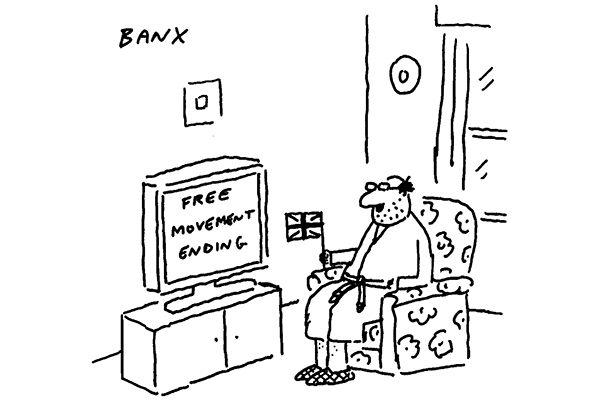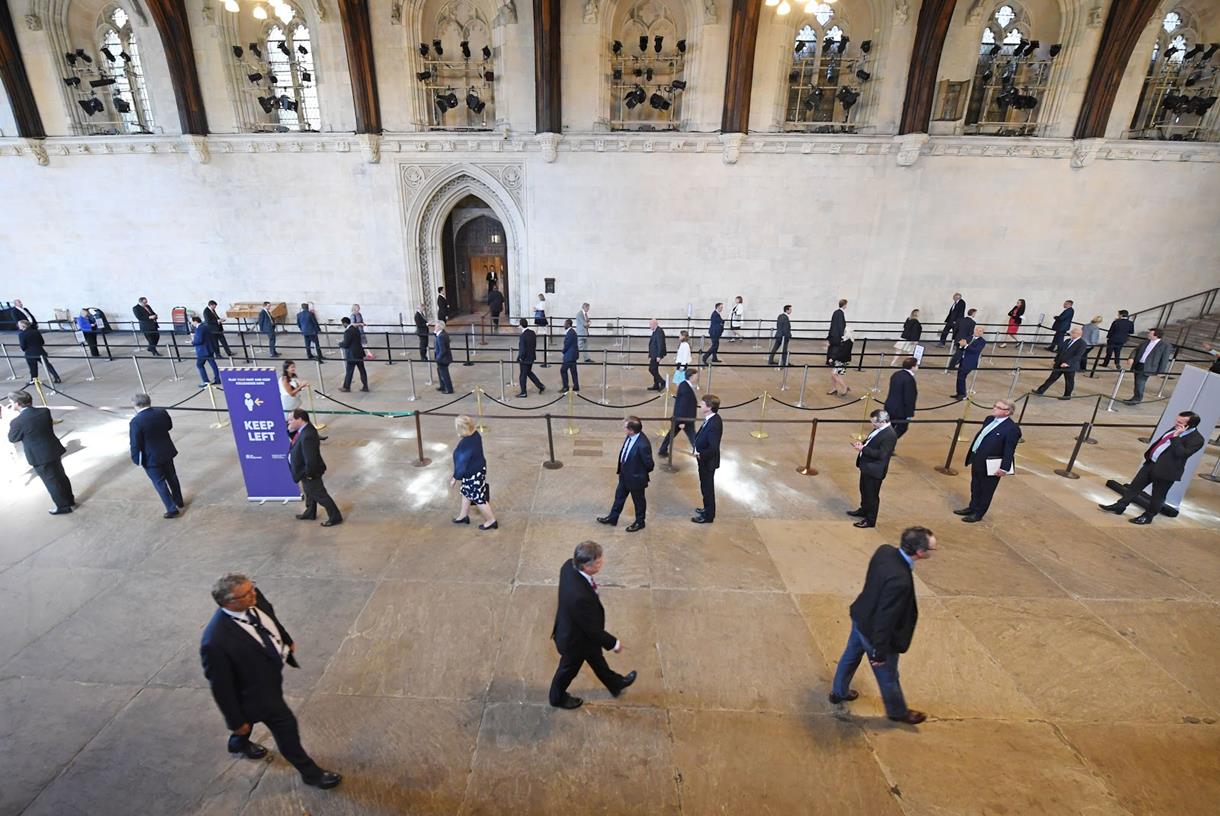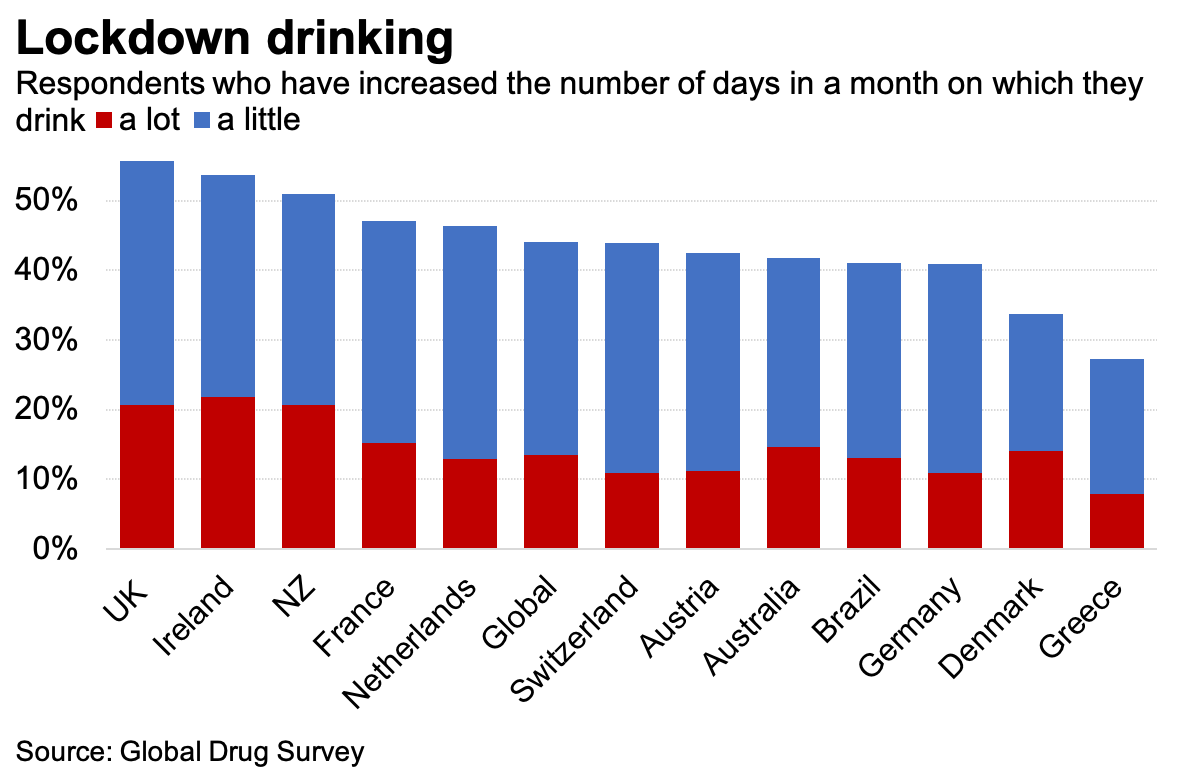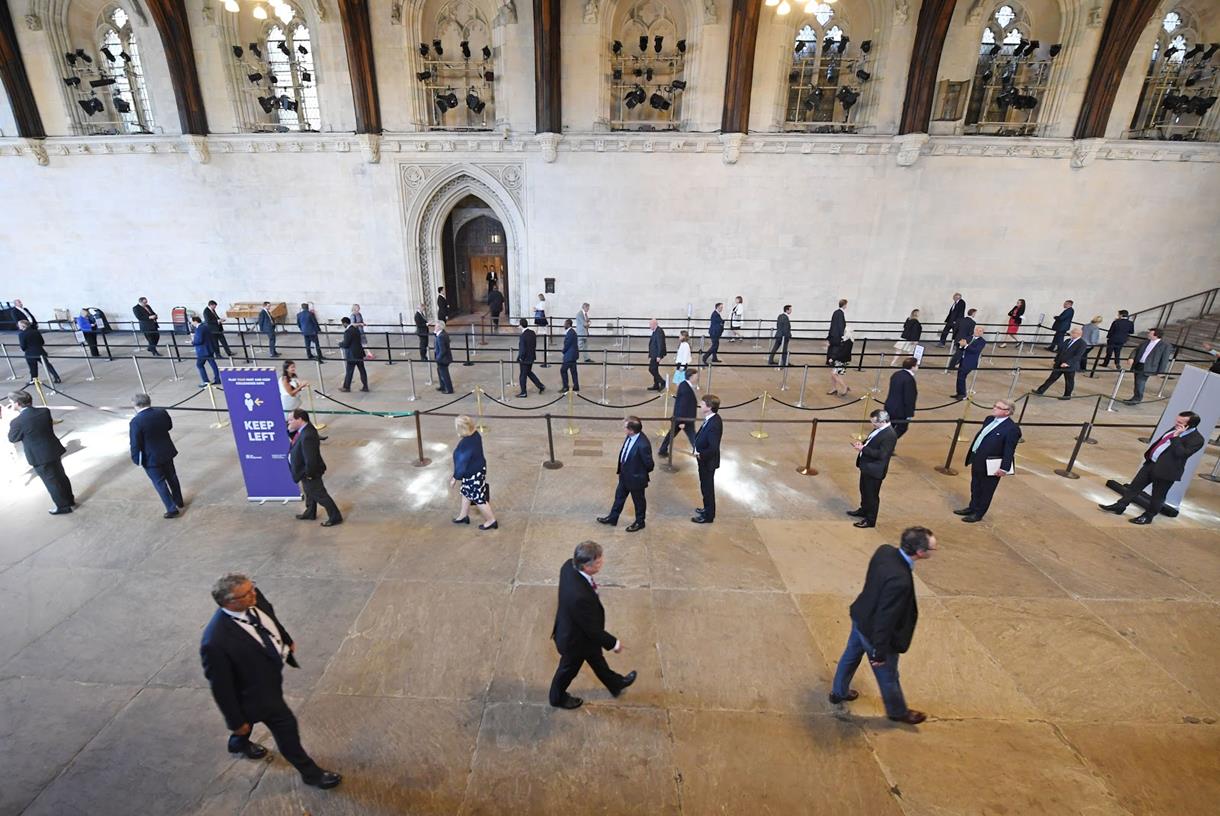The Spectator brings you the latest insight, news and research from the front line. Sign up here to receive this briefing daily by email, and stay abreast of developments both at home and abroad.
News and analysis
- More Covid-19 deaths in Scotland have happened in care homes than hospitals, according to the National Records of Scotland. Details below.
- A report from the Education Endowment Foundation finds that the attainment gap caused by shutting down schools could wipe out a decade of gains from education policy. Ross Clark has the details below.
- The NHS test-and-trace programme is not tracing the contacts of at least 60% of people who test positive for Covid-19.
- MPs have voted to end voting from home. At today’s PMQs, Boris Johnson offered MPs who are shielding the chance to vote by proxy, rather than just being paired.
- Researchers at the Crick Institute have discovered dozens of blood proteins that can predict how ill someone will get from Covid-19.
- The Trussell Trust delivered 89% more emergency food parcels in April compared with the same month last year.
- London City Airport will resume commercial flights at the end of June. The airport’s runway has been closed since 25 March.
- Synagogues have banned singing and will ask returning congregants to book attendance for services online.

Lockdown attainment gap could wipe out a decade of gains from education policy by Ross Clark
From the beginning of lockdown in March, it became clear that children were going to have a very different experience depending on where they are educated. Many private schools and some of the best state schools immediately made arrangements for teaching to continue online, uninterrupted. For many other children, it has been a case of being set only the odd homework assignment.
The quality in educational experience during the lockdown is going to have a very large impact on attainment. A rapid evidence assessment by the think tank the Education Endowment Foundation has attempted to put a figure on just how the attainment gap could grow if children are kept out of the classroom until September. Using studies from around the world that have been conducted into previous school closures – caused by adverse weather, hurricanes, strikes and pandemics, as well as the annual summer vacation – it has concluded that the attainment gap could wipe out a decade of gains from education policy. Extrapolation from those studies suggested that a near six-month closure of schools could lead to an attainment gap of between 11 per cent and 75 per cent, with a median figure of 36 per cent.
The Foundation proposes that measures will have to be introduced after the lockdown to help children from poor homes to catch up. One-to-one tuition, it says, could make up for five months’ progress. Even low-cost tuition provided by university students, it says, would be worth three months’ progress. It also suggests that, following the lockdown, pupil premium money would be best spent on professional development of teachers in schools with the most disadvantaged children. But first, the government is going to have to find a way around the unions’ reluctance to get teachers back into the classroom.
Read more from Ross on Coffee House.
In pictures

In words
If we were to run into the same disease, knowing exactly what we know about it today, I think we would end up doing something in between what Sweden did and what the rest of the world has done… Yes, I think we could have done better in what we did in Sweden, clearly.
– Anders Tegnell, the chief epidemiologist at Sweden’s Public Health Agency. Context below.
Fact-check: has Sweden expressed regret?
Has the great Swedish mea culpa finally arrived? Anders Tegnell, Sweden’s state epidemiologist, is quoted by the Financial Times saying that his country ‘should have imposed more restrictions to avoid having such a high death toll’. His ‘admission’, continues the FT, ‘is striking as for months he has criticised other countries’ lockdowns’. The Guardian goes just as hard on the story. ‘Man Behind Sweden’s Controversial Virus Strategy Admits Mistakes,’ screams Bloomberg. But turn to today’s Swedish press and there’s something strange: they seem to have missed the story entirely. All the stranger, seeing that his remarks were made to Swedish Radio. Was something lost – or, rather, added – in translation?
Tegnell’s brief remarks to Radio Ekot are here. He was stating the obvious: of course more should have been done, he says. But it’s still unclear what – because we still don’t know what worked. And that’s his point. Sweden, he said, is one of the few countries that has increased various measures slowly. ‘All other countries started with a lot of things at once. The problem with that is that you don’t really know which of the measures you have taken has the best effect. Maybe we know that now when you start undoing restrictions one by one. And then, maybe, we get some kind of lesson about what else – besides what we did – you could do short of total shutdown.’ The correct path, Tegnell says, probably lies between Sweden’s approach and the rest of Europe. The Swedish press is now running reports about the overreaction of the English-language headlines: Dagens Nyheter goes back Tegnell for comment. ‘I think it was spun pretty hard,’ he tells DN. Of course Sweden made mistakes: ‘To say anything else would be strange.’
Scotland’s care home deaths overtake hospital deaths
The National Records of Scotland has released updated figures in Scotland, which reveal that Covid-19 deaths in care homes have just overtaken deaths in hospitals: 1,818 deaths in homes, three more than the 1,815 in hospitals, up to 31 May. While the number of deaths from Covid-19 is falling week by week, the appetite for answers is ramping up now that Nicola Sturgeon has green-lighted a public inquiry into the response to coronavirus, before and during the pandemic. There is little doubt that care homes will play a major part in the investigation.
As Professors Carl Heneghan and Tom Jefferson detail in this week’s Spectator magazine, out tomorrow, Britain’s governments and other authorities were distracted by the need to protect hospitals from overload, and as a result, care homes – 801 of which already had Covid-19 outbreaks by the time lockdown was imposed – were overlooked. In order to protect the NHS, elderly patients were discharged into care homes without even being tested for the virus. How this was allowed to happen and why care homes weren’t better prioritised will be a question put to leaders – not just in Scotland, but in the heart of Westminster too.
Global news
- China did not release the genetic map of Covid-19 for more than a week according to a report in the Associated Press.
- Donald Trump has said the Republican party has been forced to move their August convention away from North Carolina. The announcement comes after the state’s governor refused to pre-authorise a gathering of 19,000 people.
- Dubai’s shopping malls have reopened to 100% capacity.
- Poland has rescheduled its presidential election to 28 June. The original vote on 10 May was delayed by the pandemic.
- Australians were the worst, or best depending on the news outlet, panic buyers in the world according to a study from the University of New South Wales.
- A cobbler in Romania has made size 75 shoes to help people maintain social distancing rules.
Our latest podcast
Research: An early warning
How ill will a person become if infected with Covid-19? While age, gender and ethnic background seem to be large contributing factors, evidence is developing that could make this prediction even more precise. New research from Britain’s Francis Crick Institute and Germany’s Charite Universitaetsmedizin Berlin have identified 27 proteins in a person’s bloodstream, some of which were ‘not previously associated with the infection and the host response’ which can serve as an indication for how a Covid-19 patient will react to the virus. The researchers believe these ‘potential biomarkers’ can help predict the severity of what the patient will experience, and be of use in developing potential ‘therapeutic targets’ to tackle the virus.
Datawatch

Coronomics
- British households paid back a record £7.4 billion worth of debt in April, according to the Bank of England. More people at home also meant new borrowing fell to half of February’s levels.
- The video conferencing software Zoom is now valued at $58 billion compared with $15.9 billion a year ago. Use of the technology jumped 30-fold in April.
- Demand for water during lockdown is up to 25% higher than normal in some parts of the UK. Water companies have asked people to avoid using hose pipes, sprinklers and filling paddling pools.
- Australia has now entered a recession according to the country’s treasurer.
- Global smartphone sales dropped by more than 20% during the first quarter of 2020 year-on-year. Factory closures and reduced demand caused by the pandemic have been blamed.
- Divorce enquiries between the beginning of lockdown and mid-May rose by 42% in the UK compared with the same period last year, according to Co-op Legal Services.
More from The Spectator
Inside the final act of the Brexit drama – John Keiger
Ofcom shouldn’t be allowed to censor ‘harmful’ opinions – Toby Young
Boris Johnson’s backbench problem – Katy Balls
The crisis in lockdown learning – Ross Clark
Boris Johnson’s backbench problem – Katy Balls
Self-isolation tips from Spectator Life
A beginner’s guide to exiting lockdown – Simon Evans
Life’s a picnic: luxury treats to elevate your hamper – Spectator Life
Listen: Table Talk with Rhik Samadder (plus a blueberry pancakes recipe) – Spectator Life







Comments